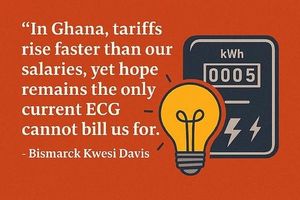The Canadian economy recently experienced significant adjustments as major economic indicators indicate both challenges and possibly recovery. With the Bank of Canada (BoC) making notable revisions to its assessment of the nation's economic health, stakeholders are particularly concerned about the mortgage market's intricacies, which could have hefty consequences for consumers.
Statistics Canada recently made astronomical revisions to the real Gross Domestic Product (GDP), adding the equivalent of an entire year of output over three years. This surge suggests the economy is operating much closer to its maximum capacity than previously thought, setting the stage for potentially increasing inflation rates. Such developments pose challenges for the BoC, particularly since the central bank recently slashed interest rates, expecting to stimulate growth amid what was thought to be underperformance.
To complicate matters, BoC Deputy Governor Carolyn Rogers has raised alarms about policymakers' attempts to alter mortgage regulations. During discussions, she cautioned against "tinkering" with mortgage regulations aimed solely at short-term affordability. Such measures, Rogers argued, could lead to longer-term ramifications, increasing borrowers' liabilities and undermining overall affordability. This sentiment is shared across financial spectrums, amplifying concerns about the sustainability of the mortgage market moving forward.
While these economic indicators appear alarming, the residential real estate market is presenting mixed signals. On one hand, there’s been an uptick in real estate transactions, with sales increasing by 30% driven by shifting societal and economic dynamics. Yet, the benchmark home price dropped to $707,700—a decrease of 0.8% from the previous month, signaling continuing pressures from rising interest rates. The benchmark price is now 16.9% below the peak reached merely last year.
This positional drop brings forth consumer anxieties, particularly when juxtaposed against rising consumer insolvencies. Data showed insolvency filings skyrocketing by 8.8% annually as Canadians grappling with economic conditions face increased financial strain. This stark reality leaves many unsettled, as the feedback loop between economic comfort and real estate market dynamics grows more complex.
Meanwhile, the construction sector has shown signs of optimism with building intentions reportedly improving. Despite nominal increases, real growth has faltered when set against inflation, alluding to the struggle between rising costs and feasible development. Surprisingly, the value of building permits surged to $13 billion—a new record. Yet inflation impacts the physical volume of construction, rolling back expectations of tangible growth.
Notably, the BoC is steering its strategy toward broader market behavior, with recent interest rate cuts hinting at more subdued growth expectations. These cuts resulted from what analysts deemed as unfavorable economic forecasts and persistent inflation concerns. Although rates decreased to 3.75%, the path moving forward will likely depend on bolstered consumer confidence and mortgage financing options.
Compounding the situation, inflation figures have been less than favorable. Analysts project inflation rates to rise subtly, with predictions hovering at 1.9% for October compared to 1.6% the previous month. A notable factor is the fluctuation of oil prices, having recently seen stabilization near the US$75 per barrel mark. This variance indicates potential pressure on Canada’s consumer price index, driving shelter costs higher due to increasing property taxes.
Experts, including RBC economist Claire Fan, caution against reading too much optimism from localized improvements; trends of low inflation should remain intact. Core inflation rates are also expected to mirror reductions as mortgage rates slow, implying clearer skies for inflation, albeit on the horizon.
With rental inflation seeing rates peak at 8.3%, expectations indicate moderation. Approximately 5.5% growth was noted within owned accommodation prices, now easing as borrowing costs settle, but anticipative drop-offs reveal rental markets may still lag on full recovery, maintaining high rates amid the shifting backdrop.
While the Canadian economy is adjusting to these multifaceted pressures, the upcoming months promise to present pivotal moments of resilience and challenge. Each component of the economic spectrum—mortgages, real estate prices, consumer sentiment, and inflation—bears weighty consequences on the path forward, contributing to the larger narrative of Canada's economic story.



